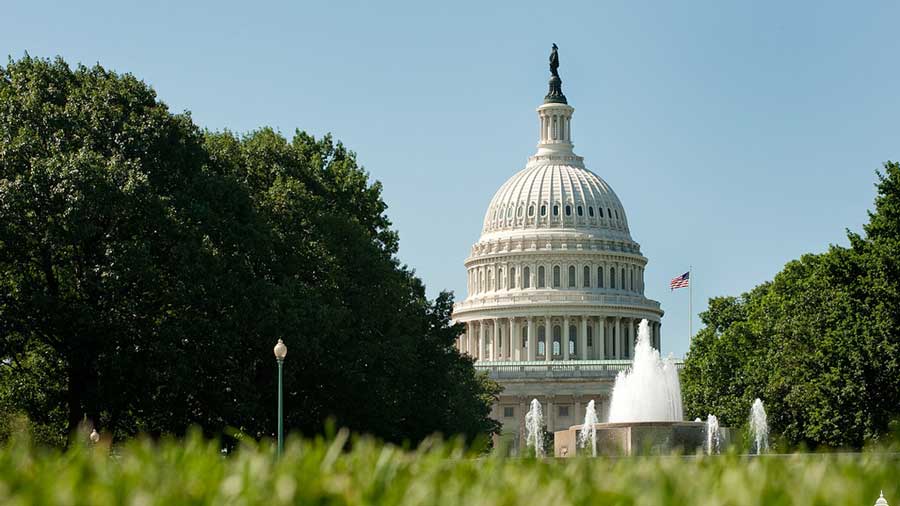Senate C-Band Auction Bill ‘Final’ Version Introduced

The smarter way to stay on top of broadcasting and cable industry. Sign up below
You are now subscribed
Your newsletter sign-up was successful
What is being described as the final version of a new, bipartisan, version of a Senate bill mandating a public auction of C-Band satellite spectrum for 5G has been introduced and it includes $5 billion to relocate incumbent users — which include broadcasters and cable operator clients as well as satellite service providers.
A bill backed by Republican Senators Roger Wicker (R-Miss.) and John Thune (R-S.D.) the chairman of the Senate Commerce Committee and Communications Subcommittee, respectively, passed out of the Senate Commerce Committee last month.
The new Spectrum Management And Reallocation for Taxpayers (or SMART) Act also provides “no more than” $1 billion in incentive payments for those satellite operators to get off the spectrum ASAP, $5 billion for the federal treasury, and the rest — which satellite operators predict could be tens of billions of dollars — for a next-generation 911 trust fund, though that would be capped at $12.5 billion. If there is any money left — and if the C-Band Alliance is correct, there should be — it will go into a Digital Divide Trust Fund.
RELATED: FCC Gets Earful on C-Band
The bill directs the FCC to free up 300 megahertz of spectrum, auctioning 280 MHz and using the remaining as a guard band against interference, which the FCC has already said it plans to do. It is how the auction money raised would be allocated that has been the big question mark, one the new version of the bill answers with specifics.
Satellite operators represented by the C-Band Alliance (CBA) had sought a percentage of the proceeds rather than a flat fee, per the bill's capped $1 billion. A representative of CBA was not available for comment at press time on the bill.
That Digital Divide money is to be spent on: 1) “wireless broadband infrastructure in areas that the Commission has determined are underserved or unserved;” 2) “wired broadband infrastructure in areas that the Commission has determined are underserved or unserved with respect to wired broadband internet access service;” and 3) “broadband infrastructure to support other technologies, including telehealth, telemedicine, e-government, and educational opportunities at home.”
The smarter way to stay on top of broadcasting and cable industry. Sign up below
The bill is sponsored by Sens. John Kennedy (R-La.), Brian Schatz (D-Hawaii) and Maria Cantwell (D-Wash.). The bill must still be voted by the full Senate and then by the House, or alternately reconciled with a House's approach and re-voted in the Senate.
RELATED: House Gets C-Band Earful
“The bipartisan Senate bill introduced today is needed to ensure the FCC is not held hostage to the demands of foreign satellite companies seeking an unjustified windfall at taxpayer expense,” Michael Calabrese, director of the Wireless Future Project for New America‘s Open Technology Institute, said. “The American public owns the airwaves. This bill mandates an early auction and provides a generous incentive payment to satellite incumbents, but it also redirects $15 billion or more in auction revenue to fund major investments in rural broadband, digital inclusion programs and to modernize public safety infrastructure.”
Contributing editor John Eggerton has been an editor and/or writer on media regulation, legislation and policy for over four decades, including covering the FCC, FTC, Congress, the major media trade associations, and the federal courts. In addition to Multichannel News and Broadcasting + Cable, his work has appeared in Radio World, TV Technology, TV Fax, This Week in Consumer Electronics, Variety and the Encyclopedia Britannica.

